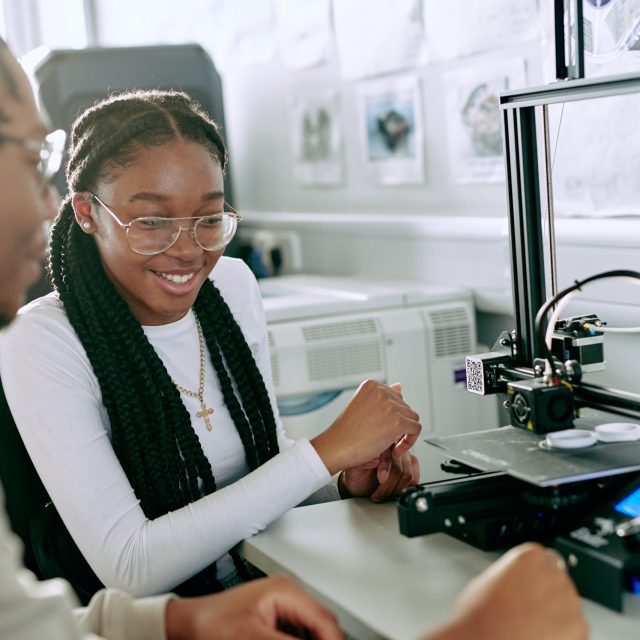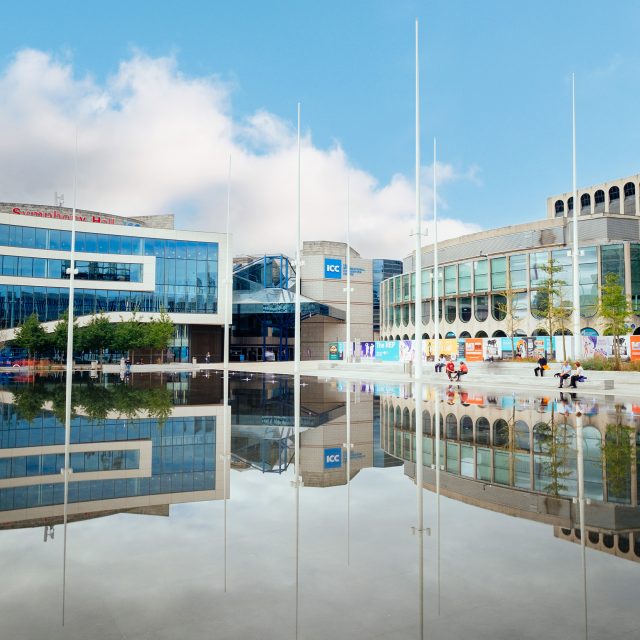Why Indian firms find success in the West Midlands
The West Midlands’ strong business offer attracted 57% of all Indian UK investment in 2020. Currently, the region is home to 76 recorded Indian FDI investments, and for good reason.
Indian companies have found great success when relocating or opening international headquarters in Birmingham, Coventry and Wolverhampton.
What makes the West Midlands such a lucrative location for international investment in the UK? The best way to find out is to ask those involved, as we did during the West Midlands Growth Company’s (WMGC) recent UK-India Future Mobility event.
Speaking at the event were:
- Nilesh Bothra, Co-founder and CEO of Calamus
- Dr Siddhartha Khastgir, Head of Verification & Validation of Connected and Autonomous Vehicles at WMG, University of Warwick
- Ashish Joshi, CEO of Classic Legends
- Vipin Sondhi, Former MD & CEO of Ashok Leyland, who chaired the event.
The heart of UK manufacturing
It goes without saying that the West Midlands has a long history of advanced manufacturing. We were the cradle of the industrial revolution. This expertise is more prevalent than ever and allows modern companies to evolve in leaps and bounds as they find the key to their product development on their doorstep.
“I think the UK has one of the best advanced manufacturing and engineering setups in the world,” said Nilesh. His company, Calamus, has developed the next generation of electric bikes. “We bring in talent, as well as get access to a lot of the advanced manufacturing in the UK, trying to bridge that gap and bring in a perfect combination of both sides to create a global company.
“It has worked really, really well for us. We also believe that localisation is the new globalisation… The rich British heritage with respect to manufacturing and engineering has done us a lot of good.”
Calamus is one of many businesses that have made use of local manufacturing to realise future mobility projects. From the Advanced Propulsion Centre to Coventry’s Gigafactory in the making, local facilities are helping to unlock the potential of transport technology.
“I think it’s a great place to be for building anything tangible,” Nilesh concluded. “There is a great amount of work going on, even with respect to automation as well as intelligent vehicles. There’s a lot of value with respect to this industry here in the Midlands.”
Industry partnerships and centres of excellence
Of course, to advance manufacturing capabilities to the level seen in the West Midlands, effort has to be put towards research and development. Dr Siddartha Khastgir applauded the academic-industry partnerships that have evolved the region’s capabilities.
“Traditionally, we used to spend 5, 10, 20 years trying to create something. Academics used to work in their silos, and then somehow they would meet a person in industry, and then they have a conversation. Those days are gone. Now, academia and industry have to work together, otherwise, we won’t get the speed at which research and innovation need to happen for the challenges that we have in future mobility.”
The large number of centres of excellence and research in the West Midlands is a huge benefit to any forward-thinking companies coming to the area. The UK Battery Industrialisation Centre is an open-access facility that can work with your company to design and produce new battery innovations and improve products. Meanwhile, Midlands Future Mobility operates the region’s interconnected, real-world, 300-mile road testbed, working with industry partners to conduct large-scale trials on their technologies.
These are just two of many groups that strive for innovation in the region. As Siddhartha said, “what is unique to the West Midlands right now is the sheer density of work that is going on between university and industry. And I would like to say that the UK is quite unique in that we’ve got a collaborative nature to our work. I think that that’s driving a lot of this research and innovation in the West Midlands area. We’ve got all these fantastic industrial partners, we’ve got the research institutes, Warwick Manufacturing Group (WMG), we’ve got the Manufacturing Technology Centre, and others.
“So, we’ve got the density of people who can actually drive this forward, and I think that makes West Midlands very unique. But if we want to stay competitive, we need to ensure that the speed of research is also increasing and meeting the demands of industry.”
An academic and industrious culture
Having the partnerships, the research centres, and the manufacturing facilities are huge boons to companies in the area. Still, each of these is reliant on one thing: the people behind them.
This is one of the most exciting times in the history of the West Midlands. Industry is booming, sectors are growing, and the Commonwealth Games is just a few months away. Returning to Nilesh for a moment, he summed up the electric atmosphere across our cities: “The amount of passion, and the amount of passion not just in automotives, but in technology in general. That really drove us, and you can feel it. You can feel it in your gut when you’re there.”
Dr Siddartha added: “There’s a definite keenness and appetite in the region to actually keep innovating, not just stay and bank on the laurels that we’ve had over the last many decades. I think that is important because for us to keep innovating, we need to have that drive to keep learning and to do better than what we have right now today. I think that’s there in the region. It’s part of the regulatory regime of the region. It’s part of the academic culture of the region. It’s part of the industrial culture of the region. That makes it very unique.”
The West Midlands has eight local universities with a 57,000 strong graduate pipeline. Another 20 universities within an hour’s commute add 127,000 young people of talent. In fact, the West Midlands is one of the youngest populations in the UK, with 32% of people under the age of 25. As Ashish said, “This is all about trained and skilled people, manpower, workforce, what you would need if you were setting up.” There are plenty of young, passionate, intelligent people in our talent pool, trained at some of the best universities in the UK, waiting to join your team.
The Global Growth Programme
The potential for Indian UK investment in the West Midlands is staggering. It’s a success story we’ve seen time and time again, and is why we are actively working to facilitate companies’ investment.
The Global Growth Programme is our answer to helping international companies overcome the obstacles to investing in the UK. Members gain a wide variety of benefits tailor-made to making the journey easier.
Benefits include:
- Fully funded desk space for nine months
- Bespoke business mentoring
- Aid with PR and comms
- Invitations to networking events
- and much more
We’re here to help, and you can get involved in the Programme. If you have not already invested in the West Midlands, contact our International Markets Lead, Chris Lau, to find out what you’re missing out on, and how we can help maximise your business.
Ashish said it well: “We have the people, the facilities, the research universities, and the manufacturing know-how. That that to my mind is what makes the West Midlands quite unique, not only within the UK or Europe, but I would say across the world as well.”



